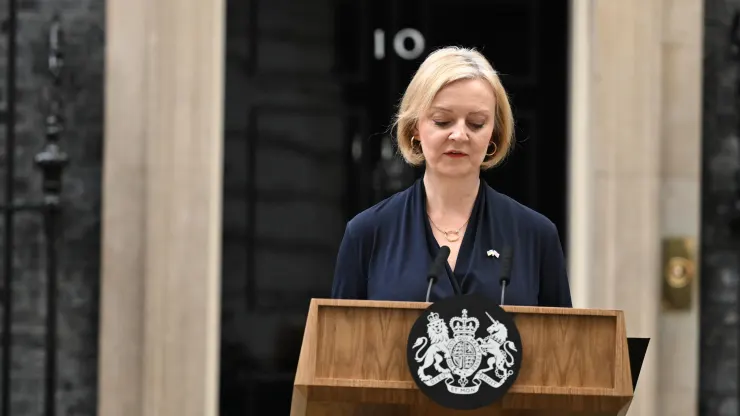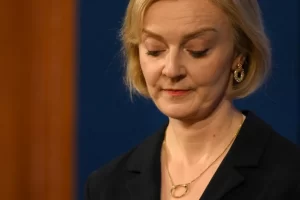
UK PRIME MINISTER LIZ TRUSS STEPS DOWN AS PRIME MINISTER
DAMI LAWRENCE
The U.K. Prime Minister Liz Truss has announced her resignation just a month and a half after taking office on Thursday following a failed tax-cutting budget that rocked financial markets and which led to a revolt within her own Conservative Party.
The development came on Thursday after her new Chancellor of the Exchequer, Jeremy Hunt, had rolled back virtually all of her economic agenda.
Hunt’s move was supposed to be an impetus for growth, but it became Truss’s declaration of political bankruptcy.
At the beginning of this month, at the Conservative Party Conference in Birmingham, Truss had still attempted to rally the party around her controversial approach of boosting Britain’s economy.
“I have three priorities for the economy: growth, growth, growth,” she said.
But what was supposed to be a change from the tumultuous era of former Prime Minister Boris Johnson unraveled at a pace that is almost unprecedented in British history, Nicholas Allen, professor of politics at Royal Holloway, University of London.

“Previous prime ministers’ central policies have unraveled very quickly, for instance, Neville Chamberlain’s leadership during the spring of 1940, Sir Anthony Eden’s Suez adventure, and David Cameron’s campaign to remain in the EU. I can also think of the backlash to Gordon Brown’s decision not to call a general election in the early autumn of 2007,” Allen said.
“But no new prime minister’s position has unraveled so early into their premiership or so catastrophically as Truss’s has over the last few weeks.”
The 47-year-old, who entered parliament in 2010 and, by 2014, found herself in a first cabinet position, secretary of state for environment, food and rural affairs under former Prime Minister David Cameron, has since served under Theresa May and Johnson in various positions.
In 2021, she was handed the top role of foreign secretary. After Johnson’s announcement to step down, she entered the leadership contest and won the race to succeed the latter with 57.4 percent of the members’ vote (against Rishi Sunak, who obtained 42.6 percent) over the summer by promising radical tax cuts, and high spending to curb energy prices, her very own version of supply-side economics.
According to her plan, one that her role models former British Prime Minister Margaret Thatcher and former US President Ronald Reagan both successfully implemented in the 1980s – albeit under very different circumstances – lower taxes, particularly for the wealthy, lead to investments that, at the same time, benefit the lower income brackets via the trickle-down effect, thus generating substantial economic growth.
However, when then-Chancellor of the Exchequer Kwasi Kwarteng presented Truss’s plans, including a mini-budget, a few weeks ago, the financial markets reacted in shock and incredulity, with a devastating effect. The pound sterling weakened significantly while UK government bond yields skyrocketed.
The Bank of England (BoE) even felt compelled to intervene with bond purchases to reassure investors. Moreover, rising interest rates on home loans exacerbated what has already been a significant cost-of-living crisis for many Britons.
For Truss, however, the damage had already been done. Her credibility was simply lost with Hunt scrapping the policies that secured her election by party members.
“Hunt’s announcements on Monday were a sign that the prime minister got it very wrong and has been forced into a huge undoing of everything that was announced just a couple of weeks ago, including the energy price guarantee, something which dominated the leadership campaign over the summer,” Thompson said.
“The U-turns announced on Monday were undoubtedly necessary but gave the impression that the prime minister is being led by her chancellor,” she added.
